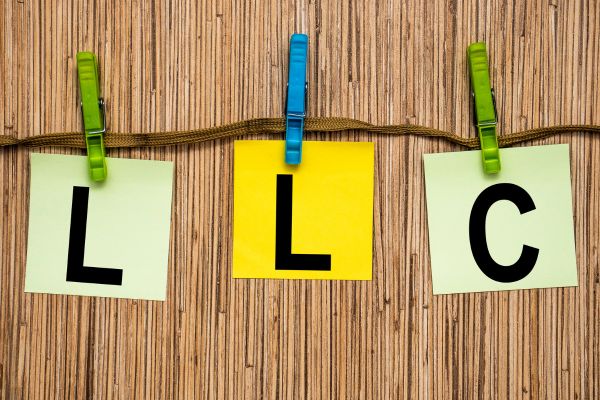When it comes to running a small business, access to funds is often one of the biggest hurdles entrepreneurs face. Small business loans can be a lifeline, offering the financial boost needed to keep operations running smoothly, expand, or simply seize opportunities when they arise. Whether you’re looking to buy new equipment, hire additional staff, or tackle unforeseen expenses, understanding your loan options can make all the difference.
What Are Small Business Loans?
Small business loans are financial products designed specifically for small businesses. These loans come in various forms, from traditional bank loans to more flexible online lending solutions. The key here is that these loans provide businesses with the working capital they need to maintain or grow their operations.
In general, lenders will require some form of collateral or a personal guarantee, though some small business loans are unsecured. The interest rate and terms of repayment depend on the lender, the loan type, and your business’s financial health.
Why Are Small Business Loans Important?
At some point, nearly every small business will need an influx of capital. Whether it’s due to cash flow issues, seasonal slumps, or growth opportunities, small business loans offer the resources needed to tackle these challenges head-on. Not only can these loans keep the lights on, but they can also help businesses expand and innovate.
Without access to loans, many small businesses would struggle to survive. The flexibility of small business loans allows owners to make strategic decisions without the fear of cash flow disruptions.
Types of Small Business Loans
There’s no one-size-fits-all when it comes to small business loans. Each type of loan serves a different purpose, and it’s essential to understand which one aligns with your business needs. Let’s break down some common options:
- Term Loans
These are traditional loans where businesses receive a lump sum of money upfront and repay it over time with interest. Term loans are great for businesses that need a large amount of money for a specific purpose, like buying equipment or expanding their operations. - SBA Loans
Small Business Administration (SBA) loans are government-backed and known for offering competitive interest rates and favorable repayment terms. They’re ideal for businesses that may not qualify for traditional loans. However, SBA loans often require extensive paperwork and can take longer to process. - Business Lines of Credit
Think of this as a credit card for your business. You get a set credit limit, and you can borrow as much or as little as you need, repaying only the amount you use. A business line of credit is incredibly flexible and can be used for anything from purchasing inventory to covering unexpected expenses. - Equipment Financing
If your business needs to purchase machinery, vehicles, or other equipment, this type of loan is specifically designed to cover those costs. The equipment itself often serves as collateral for the loan, making it a safer bet for lenders and typically offering lower interest rates. - Invoice Financing
For businesses that have outstanding invoices but need cash flow immediately, invoice financing allows them to borrow against the value of those invoices. This can be a quick way to get working capital without taking on traditional debt. - Merchant Cash Advances
Although not technically a loan, a merchant cash advance offers a lump sum payment in exchange for a percentage of future sales. While this can provide immediate funding, the high fees make it an expensive option for long-term financing.
How to Qualify for a Small Business Loan
Applying for a small business loan can be a nerve-wracking experience, especially if you’re not sure whether you’ll qualify. Lenders look at a variety of factors when deciding whether to approve your application. Here are a few tips to boost your chances:
- Credit Score
Your credit score is one of the first things lenders will look at. A high credit score increases your chances of approval and can result in more favorable loan terms. If your credit score is less than stellar, you may want to work on improving it before applying for a loan. - Business Plan
A solid business plan is crucial, especially if you’re applying for a loan to expand or launch a new initiative. Lenders want to see that you have a clear strategy for how the loan will be used and how you plan to repay it. - Financial Statements
You’ll need to provide detailed financial records, including profit and loss statements, balance sheets, and cash flow statements. Lenders want to know that your business is financially healthy and capable of repaying the loan. - Collateral
Some loans require collateral, which could be anything from property to equipment. Collateral provides security to the lender, lowering their risk and increasing your chances of getting approved.
Pros and Cons of Small Business Loans
Small business loans can be an incredible asset, but they’re not without their downsides. Before signing on the dotted line, weigh the pros and cons to ensure a loan is the right move for your business.
Pros:
- Immediate Access to Capital: Loans provide quick access to funds, allowing businesses to seize opportunities or manage cash flow issues effectively.
- Flexible Repayment Terms: Many lenders offer flexible repayment options, allowing businesses to choose terms that align with their revenue cycles.
- Growth Opportunities: With a loan, businesses can invest in new projects, hire staff, or purchase equipment that can spur growth.
Cons:
- Interest Costs: Loans come with interest, which means you’ll pay more than the amount you borrowed. The longer the repayment term, the more interest you’ll end up paying.
- Risk of Debt: If your business hits a rough patch and struggles to make loan payments, you could find yourself in a cycle of debt. In some cases, failure to repay could result in the loss of collateral.
- Lengthy Application Process: Some loans, particularly SBA loans, require extensive documentation and can take weeks or even months to process.
FAQs About Small Business Loans
- What’s the best type of loan for a small business?
The best loan for your business depends on your specific needs. If you need quick cash flow, a business line of credit or invoice financing might be ideal. For long-term investments, consider a term loan or SBA loan. - How much can I borrow with a small business loan?
The amount you can borrow depends on your business’s financial health, the type of loan you choose, and the lender’s terms. Some loans may offer as little as $5,000, while others go up to several million dollars. - Do I need a good credit score to qualify for a small business loan?
While a good credit score helps, it’s not always required. Some lenders offer loans specifically for businesses with bad credit, though these often come with higher interest rates. - How long does it take to get approved for a loan?
Approval times vary depending on the type of loan and the lender. Online loans may be approved within days, while SBA loans can take weeks.
Conclusion
Small business loans are a vital tool for entrepreneurs looking to grow or maintain their businesses. From covering short-term expenses to making long-term investments, the right loan can open doors and provide stability. However, it’s crucial to choose a loan that fits your business’s needs and financial situation. With careful planning and the right lender, you can secure the funding necessary to achieve your goals.



